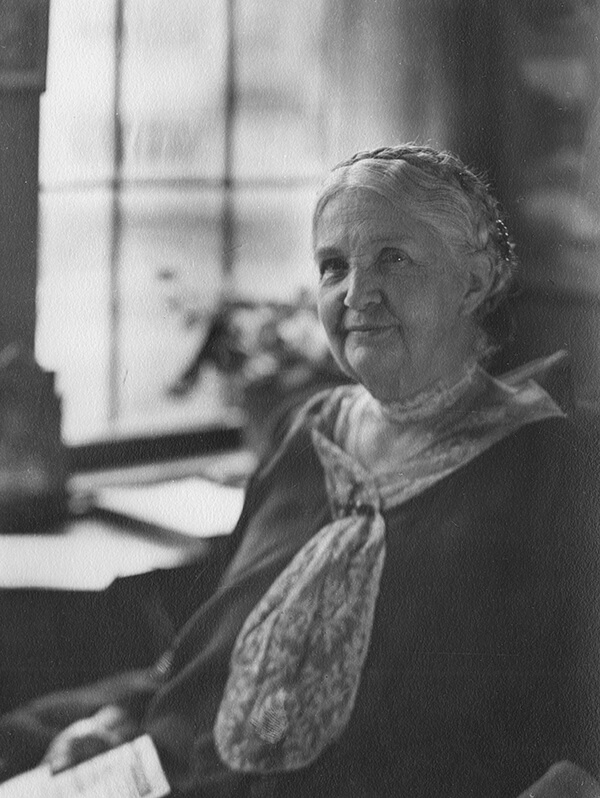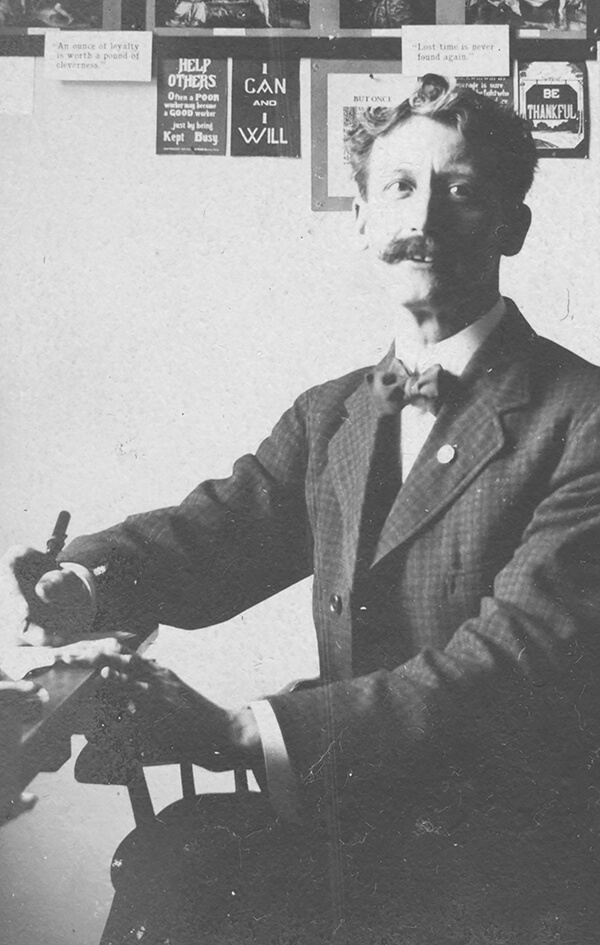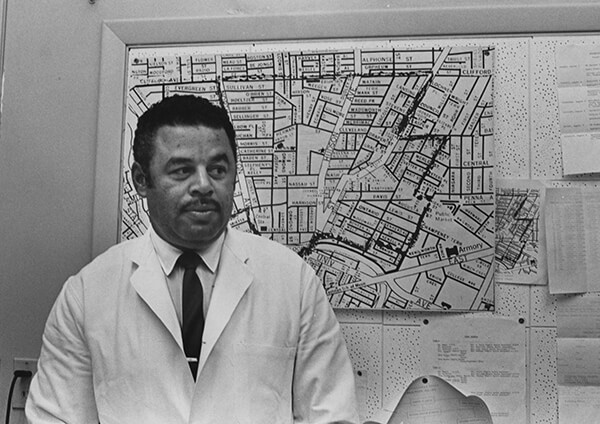Ask the Archivist
Ask the Archivist
When Did We Start Connecting with Community Organizations?
Every November, for longer than anyone can remember, the River Campus Libraries has celebrated its very best tradition: providing donations for a Thanksgiving basket for families selected by the Baden Street Settlement. Just before Thanksgiving, a caravan of library volunteers heads to Baden Street and gets to hand the donations directly to each family. It’s a time of much hugging (pre-COVID) and smiling. It’s sad that this is needed in Rochester, but RCL is honored to help, and it is an important part of who we are in Rochester’s community. What can you tell us about the origins of this tradition?—Lois Metcalf, Eileen Daly-Boas, Ashlee Huff, Jeffery Jones, Katie Papas, Diana Golemb, and Jenny Arbelo
Founded in 1901 by Therese Katz and Fannie Adler Garson of Temple B’rith Kodesh, the Social Settlement of Rochester taught the young women of the area “kitchen gardening, sewing, and primary education.” Renamed the Baden Street Settlement in 1922, it has grown to support a wide variety of needs from emergency services to day care to counseling and educational resources.
The libraries’ annual gift was well established by 1988 when it received a plaque for “distinguished volunteer service” from Baden Street. The earliest call-to-action may be this request in the December 1968 University Librarian newsletter:
Christmas is a time of giving—or so we are told. . . Would you like that good feeling that comes when you give—even to a stranger? Then, between Thanksgiving and December 20th, bring . . . clothing for Baden Street Settlement children to the Library office. Let’s make this a significant and meaningful project for the entire Staff Association.
A 1965 issue of the newsletter notes that Interlibrary Loan Office staffer Juanita Paige was president of the Achievement Club, a community group whose mission was to encourage Black teenagers to continue their education after high school. The club met at the settlement house and arranged lectures, including one by then Kodak executive Walter Cooper ’57 (PhD).
But the connections between the University and Rochester’s community service institutions stretch back much further, and include faculty and students as well as staff from all divisions.
In 1889, Unitarian minister William Channing Gannett and his wife, Mary Thorn Lewis Gannett, arrived in Rochester, and established the Boys’ Evening Home. Its focus was on the physical well-being and education of immigrant children, many of them newsboys and bootblacks. Professor Kendrick Shedd, Class of 1889, an ardent supporter of the progressive movement, served as the home’s superintendent beginning in 1900. Articles in the Campus newspaper encouraged students to volunteer as tutors and record their efforts.
More settlement houses followed—the Lewis Street Center (initially named the Association for Practical Housekeeping) in 1907 and the Genesee Settlement House in 1918. And the University’s connections, particularly among students, grew as well. In 1928, the College for Women’s YWCA group requested donations of food or money to provide Thanksgiving baskets for families recommended by the settlement houses. By 1931, 30 women students were volunteering as tutors. Fraternities and sororities also became involved, including Theta Eta, Gamma Phi, Alpha Delta Phi, and Tau Kappa Epsilon.
One of the most vital services of the settlement houses is health care. Among the many Medical Center staff involved were Paul Beaven, Class of 1913, clinical assistant professor of pediatrics emeritus, and Kenneth Woodward ’53M (MD), ’72S (MBA), who was integral to the introduction of health clinics to the houses and, in particular, in efforts to expand Baden Street’s health clinic into the current Jordan Health Center.
The words incised on the pediment of the Eastman Theatre—“for the enrichment of community life”—reflect the close association of the faculty and students of the Eastman School with Rochester’s residents. While a member of George Eastman’s Kilbourn Quartet, future Eastman School Professor Samuel Belov tutored students of the David Hochstein Music School Settlement, founded in 1920.
The University’s involvement with community service organizations continues to this day and occurs year-round with examples too numerous to mention in this space. In a 1958 Campus Times article, Kay Hartman ’59 gives a detailed description of her experience as a volunteer. Although she questions her abilities and effectiveness, she concludes: “Life is beautiful when the group decides to spend the day doing things for others.”
Ask the Archivist features a question for Melissa Mead, the John M. and Barbara Keil University Archivist and Rochester Collections Librarian.



Mary Gannett, professor Kendrick Shedd, and physician Kenneth Woodward played pivotal roles in the establishment and success of the settlement house movement in Rochester, and the longevity of the University’s connections.
Learn more
For more about the University’s history, visit the University Archives blog. To ask a question for Ask the Archivist, send an email to rochrev@rochester.edu with “Ask the Archivist” in the subject line.


